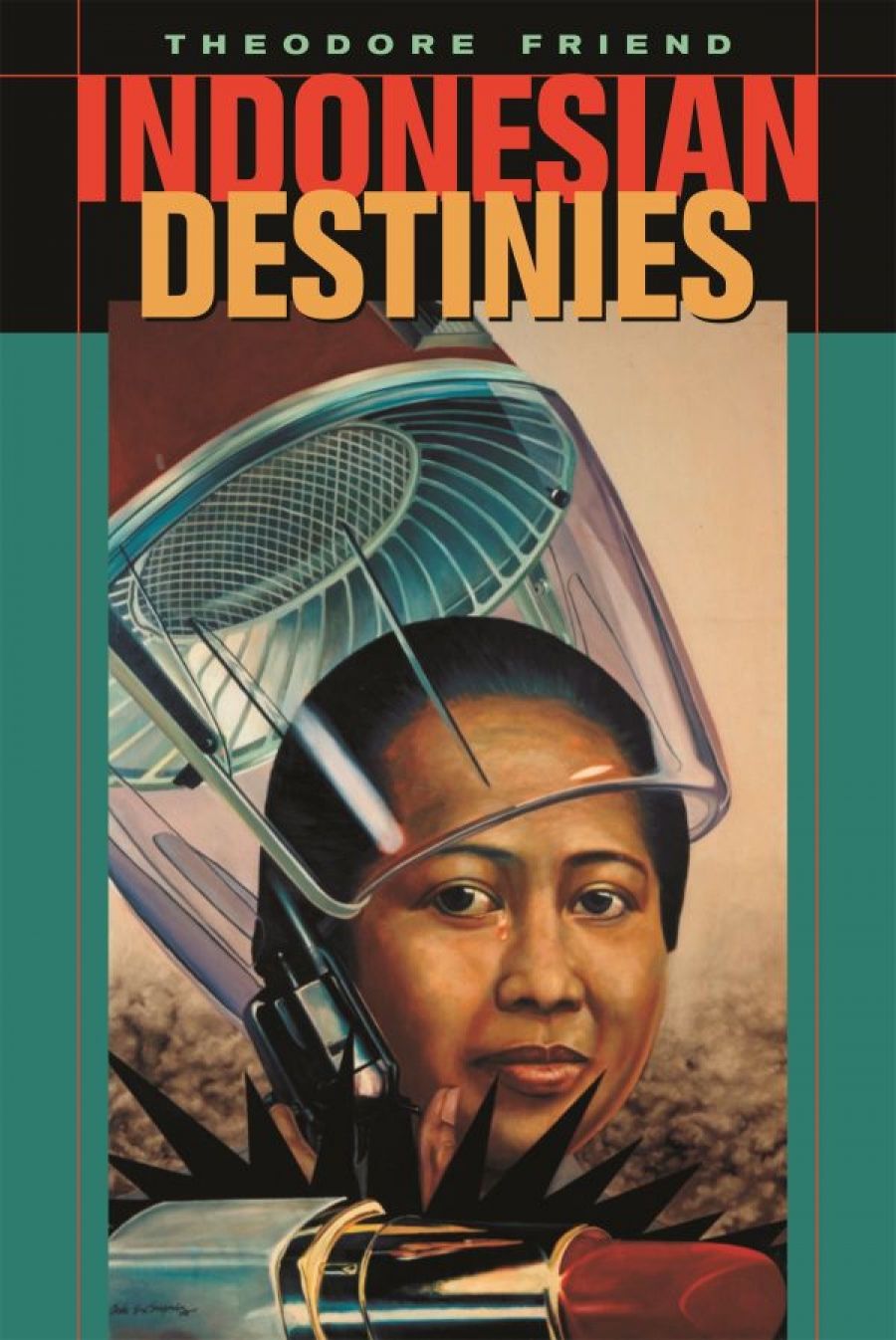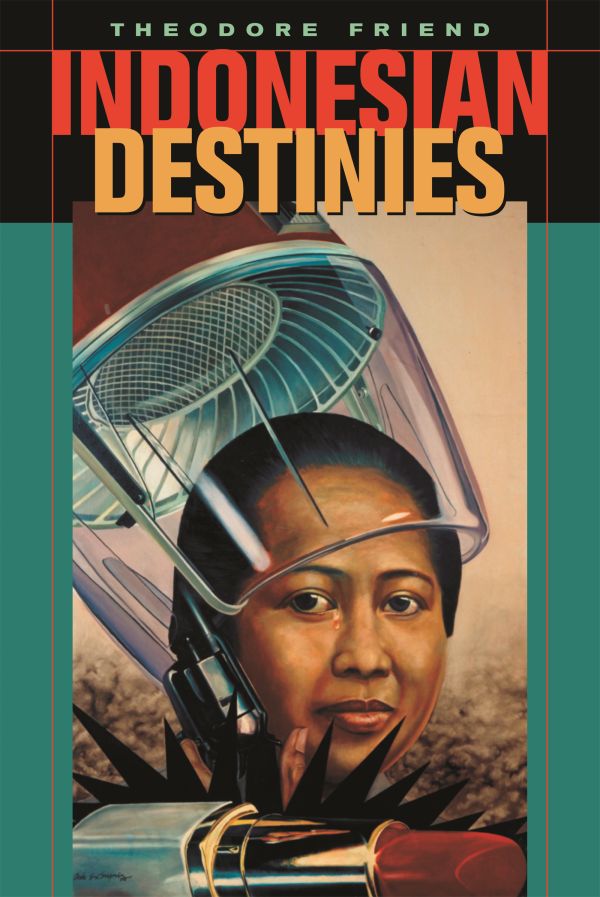
- Free Article: No
- Contents Category: History
- Custom Article Title: Friend's Refresher
- Review Article: Yes
- Article Title: Friend's Refresher
- Online Only: No
- Custom Highlight Text:
Indonesia is a difficult place to write about, because of its inherent complexity and the contested views that surround it. And then there is the sheer time that it takes to get to know the place, or at least to begin to know it, or parts of it. No one book can definitively come to terms with Indonesia’s scattered geography and dozens of cultures, its aliran (streams of influence), religious factions, social strata, degrees of development and competing interests. For these reasons, few authors or even edited collections try their hand at Indonesia as such, usually preferring to focus on an aspect of its vast and fragmentary complexity. This has been particularly so in the post-Suharto period, not least with the plethora of edited volumes that have sought to explain rapidly changing events there.
- Book 1 Title: Indonesian Destinies
- Book 1 Biblio: Harvard University Press, US$35 hb, 638 pp
- Book 1 Cover Small (400 x 600):

- Book 1 Cover (800 x 1200):

This comes through as one of three intermingling styles that characterise the book. The first style, or rather method, is an essentially chronological account of Indonesia’s history from 1945. This is comprehensive and generally well informed, although the narrative generalises in places and glosses over some important details. But despite the fact that Friend covers such a wide field, there is little seriously to challenge.
There are minor quibbles. Occasionally, Friend writes from an overtly American perspective, though here he may just be addressing his perceived audience. There are also a few minor technical glitches.
Friend’s narrative style, which includes significant patches of firsthand experience and conversation, sets this book apart from more conventional works such as Vatikiotis’s Indonesian Politics under Suharto (1993), Schwartz’s A Nation in Waiting (1994), Cribb and Brown’s Modern Indonesia: A History Since 1945 (1995), and somewhat closer to Grant’s Indonesia (1964, 1966). Friend has far more space to play with, and the personal accounts relieve what might otherwise have been a bit of a marathon.
The third element of Friend’s style, beyond the historical and personal narrative, is his analysis and comment. Occasionally, this establishes a moral tone, though here he is not entirely alone. One Indonesian who investigated the riots a year before Suharto’s fall from power noted that far too many Westerners were prone to being Suharto apologists: ‘Indonesia doesn’t need another Pak “Harto ass-licker”,’ the frustrated Indonesian tells Friend; ‘“His body is already covered with saliva”.’
Unlike many Westerners, Friend has not added to Suharto’s moisture content, nor that of his cronies, the military or many other members of the élite who were, and mostly remain, too satisfied with enriching themselves at the expense of ordinary Indonesian people. In this, Friend rejects the cultural relativist (‘psycho-historical’) explanations of Pye in Asian Power and Politics: The Cultural Dimensions of Authority (1985), instead edging towards a ‘predatory’ (political economy) analysis of the type of Evans’s Embedded Autonomy: State and Industrial Transformation (1995) or Hutchcroft’s Booty Capitalism: The Politics of Banking in the Philippines (1998), both of which apply to Indonesia’s élites.
The more recent authored works on Indonesia (including my own The Politics of Indonesia, 2002) have had to contend with tumultuous and seemingly contradictory events since May 1998. Friend does this admirably, especially in terms of Indonesia’s economic meltdown. Friend appears to be underwhelmed by the rhetoric of reformasi, which, until very recently, coloured the perspectives of so many observers who wished to see Indonesia turn out well.
Overall, Friend treads a fine line between cynicism and goodwill, and, while sceptical of much, retains a clear, balanced affection for the people who inhabit the archipelago. This is his and the book’s great strength.
With its anecdotes, accessible writing and the depth and richness of the author’s knowledge and experience, Indonesian Destinies is an excellent book with which to broach the subject of Indonesia. For me, having explored the competing, contrasting and sometimes confrontational body of material that is available, returning to Friend’s book was a welcome and perhaps necessary refresher. Anyone interested in Indonesia would benefit from reading it.


Comments powered by CComment